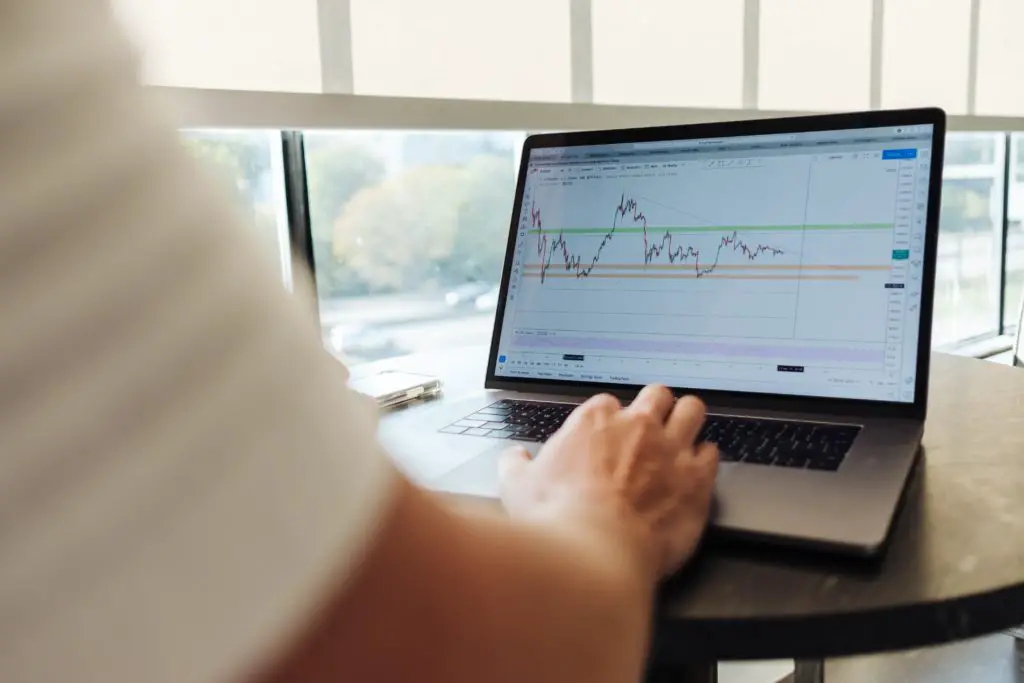Novice traders widely use paper trading to evaluate their trading methods or seasoned traders to practice trading. In paper trading, the trader would write down the date, time, and quantity of their fictitious buy and sell orders on paper, and track future gains, and losses instead of submitting actual orders to a brokerage. Without risking their own money, a trader can test out purchasing and selling assets and evaluate their performance.
Paper trading is simulated trading in which transactions are made without actual funds. Instead of placing a genuine order through a brokerage, this is accomplished by writing the trade on paper (thus the phrase “paper trading”).

Benefits of Paper Trading
Risk-free trading
Demo accounts provide several advantages, and novice traders frequently utilize them to practice and learn how to trade before engaging in real-money trading. More seasoned traders utilize demo accounts to test their methods or to get a feel for an unfamiliar platform. It is a great approach for rookie traders to learn about the market and, more importantly, about themselves as traders.
This is a highly helpful tool in the trading industry. On the flip side, trading in a virtual environment without risking real money can seem very different for a novice trader than when real money is on the line in a real account. The psychological elements of trading, such as fear and greed, are not present in demo trading.
What does it do?
First-time traders can practice and engage in trading using an account that functions and appears much like their own by using a demo account. Users with demo accounts are initially given a certain amount of virtual money, with which they may begin trading by establishing positions for buying and selling. The paper trading account displays market fluctuations on the traders’ screens just like a real account does, allowing them to choose whether to keep trading or close it out. All of this helps them evaluate their actions, draw lessons from them, and get ready to begin trading with real money.
Demo account users should reflect on their previous acts and learn from them in addition to practicing on demo accounts. For more seasoned traders who want to practice on a demo account, this is also crucial. They must determine whether their trades and methods were as successful as they had intended, and they will undoubtedly build their performance optimization strategy on this information.
Negative aspects of paper trading
The hazards associated with paper trading should not be disregarded, though. Some might advise against starting with a demo account for a variety of reasons.
Elation Trading
The primary one, in their opinion, is high that one can experience from exchanging papers. Traders can take risks that they usually wouldn’t because no actual money is being used, which increases their earnings. On the other hand, since it’s not actual money that’s lost, cases of money loss are frequently not taken seriously.
Untimely Data
Some demo accounts use information that isn’t current but is delayed by 15 to 20 minutes so that rivals can’t use it. Others provide fictitious data, but the main objective is still to prepare traders for the Forex market.
Recommendations to improve a demo account’s effectiveness
Consider it a legitimate actual account.
This will not only get over the fundamental problem with demo accounts, but it will also make the switch from demo to regular accounts easier. Although paper trading may appear simple, there is a crucial element that is missing. However, this could have unfavorable outcomes, such as trading impulsively without much thought or investigation and resulting in financial loss. Once more, during demo trading, you can get an adrenaline surge, panic, or greed.
Learn everything you can
It is strongly advised that you practice on a demo account while also learning about the market. You can use a ton of free blogs and educational websites. Never undervalue the value of having a thorough understanding of both and the markets you intend to trade on. The secret is to plan. Before transferring over, we advise using the demo account for at least a few days. Additionally, you may utilize our to predict the potential outcome of a transaction before you enter it.
Conclusion
All types of investors and traders can benefit from paper trading, which is a great resource. Even yet, when actual money is on the line, there is no practical substitute for live trading. The greatest method to assess an appropriate appetite for risk is through actual trading.
Frequently Asked Questions
- What is the Best Free Paper Trading Apps?
Some of the best free paper trading apps are InteractiveBrokers, TD Ameritrade, and Tradestation.
- Is Paper Trading Worth it?
There is no financial risk involved, and paper-trading can undoubtedly improve one’s trading and investing skills. Someone will probably transition to live trading after engaging in paper-trading for a while.
- Is paper trading suitable for novices?
Both novice and experienced traders can benefit greatly from paper trading. Under realistic market circumstances, it teaches the fundamentals of trading and risk management.
